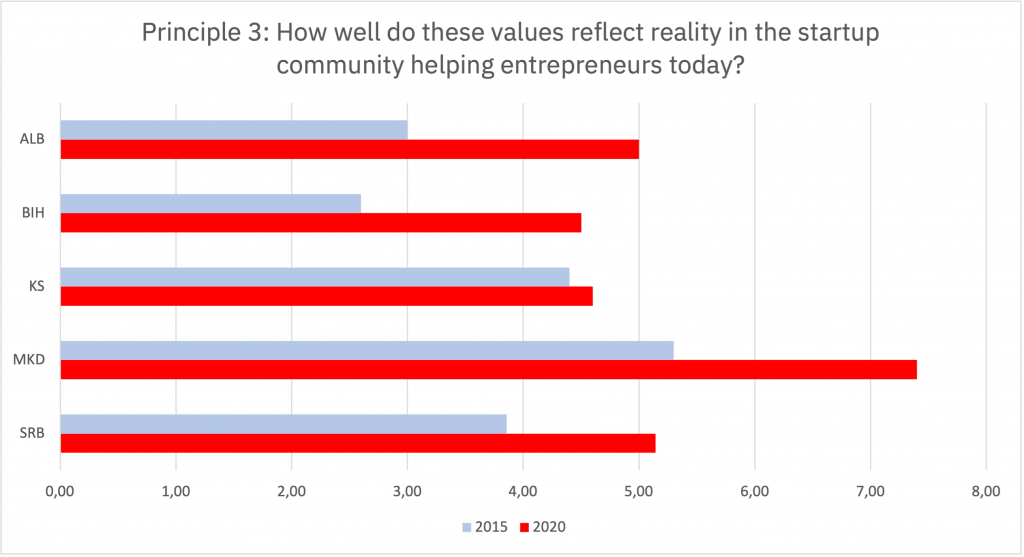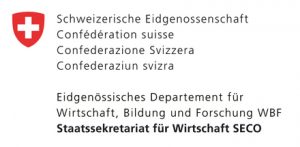Brad Feld promotes some core values, such as putting founders first, giving before you take and the importance of loving the place where you are, as essential for building a vibrant and impactful startup community. We asked our interviewees “how well do these values reflect reality in the startup community helping entrepreneurs today?”
On average, in Western Balkans, the values reflected local realities 39% better in 2020 than in 2015, although the change in Kosovo was almost insignificant. That said, the participants’ answers showed a high level of realism regarding the term “Give First” within the local context. The long-term and unknown outcome of a “Give First” mentality is recognized as foreign in a culture where reciprocity is expected to be almost immediate in any transaction. For some of the participants, there is also the lingering suspicion that others are using the “Give First” value set only to hide their real ambition of personal gain.
At best, in Western Balkans today, a small group of individuals have ‘bought’ the story and are giving back. Some of them are private, community-building initiatives. Others highlighted that the context has changed and now they have more channels to share knowledge and give back. Therefore, there is more sharing and giving back going on. This sounds like a chicken-or-egg dilemma. What comes first, the entrepreneur’s appetite to give back or the creation of channels for the entrepreneur to do so? Probably they are mutually enforcing each other. Assuming that a growing number of local entrepreneurs are interested in contributing to the community, if somebody is helping establish proper channels and pro-actively facilitating the process of engagement by entrepreneurs, a virtuous cycle of positive change could be triggered.

Many interviewees pointed to the importance and contribution of startup support programs. For them, having experienced the “Give First” culture first-hand within a program, the positive impact of helping others had become easier to understand, and they had even adopted the mantra themselves. Mentoring is the ultimate form of “Give First”. Unfortunately, mentoring remains weak in the Western Balkans for two main reasons:
- Too much mentoring is still done by paid consultants, most often as part of donor-funded projects, and very few by successful local entrepreneurs.
- Except for the occasional investor, there are not enough mentors with genuine industry experience offering their insights.
Interestingly, a group in which the “Give First” value appears the weakest is the group of successful local entrepreneurs. As corporations, they may invest in Corporate Social Responsibility causes, but as individuals, their engagement with younger entrepreneurs is low. One explanation for this may be that they have never been asked to support entrepreneurs as mentors. Another, more likely reason is that they perceive themselves as ‘self-made’ business people, who never received a helping hand from anyone (according to them), so why should the upcoming next generation of entrepreneurs have an easier journey? Hopefully, the next generation of successful business people will be more modest and open to new thinking.




